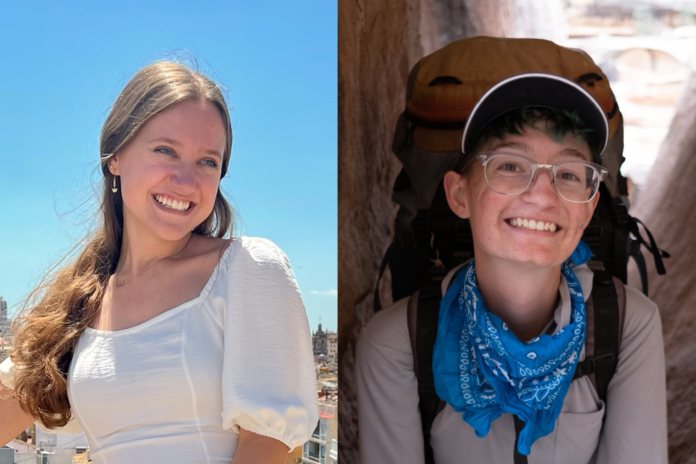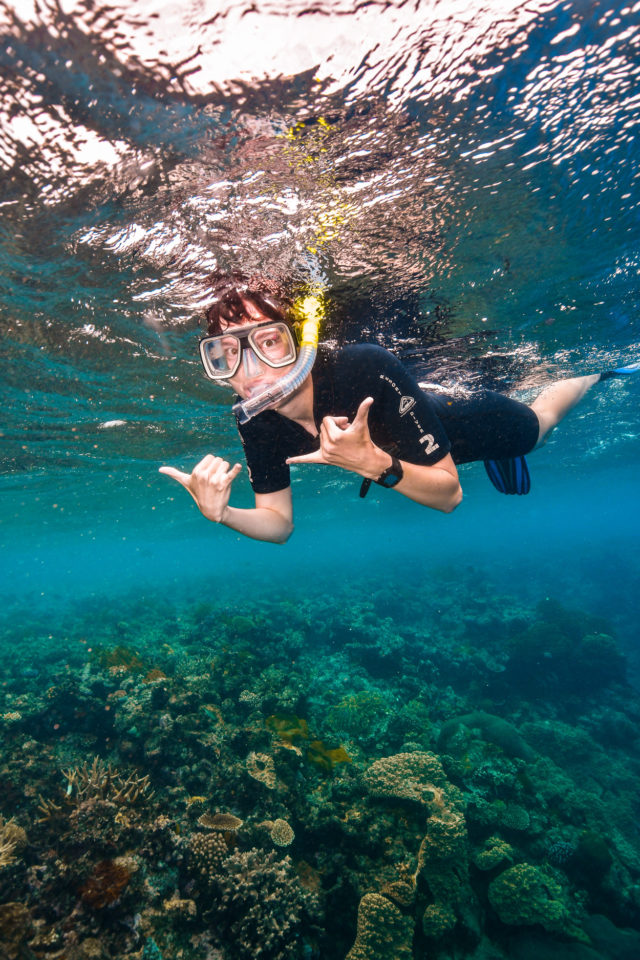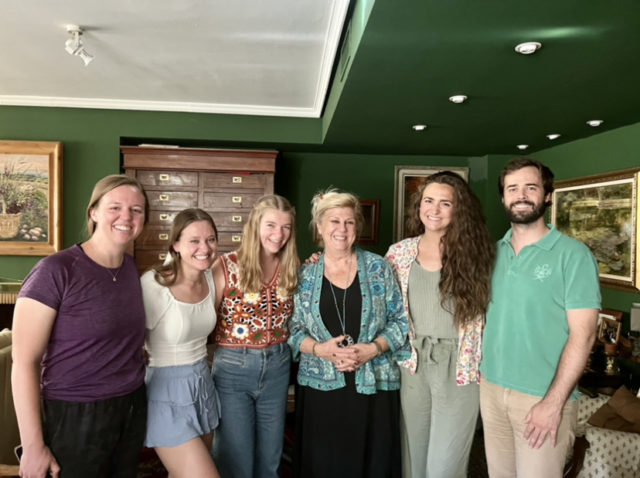
By Avery Ballmann | Staff Writer
As the spring semester ended, Baylor students traveled back home or stayed in Waco, but some adventurous bears continued their studies outside of the Baylor bubble.
According to Holly Joyner, assistant director of marketing and communications for the Center for Global Engagement, Baylor facilitated 30 faculty-led programs with 516 students studying abroad this summer.
“In terms of importance, you can look at the research and the literature, but it clearly shows that students who go abroad sometime during their four years generally are increasing in their academic group,” Joyner said.
Joyner said it’s rare to have a student say their study abroad experience didn’t make an impact on their life.
“Anecdotally, students come back, they almost always say it was one of their most pivotal experiences,” Joyner said. “They might have had a great eight semesters at Baylor, but that study abroad experience is usually like the crown jewel or capstone of their time in college.”
Rockwall senior Casey Davis studied in North Queensland, Australia, during the summer one session. Davis is a recreation and leisure services major, and the majority of his trip was spent in nature.

“We had some guest lectures, but it was essentially a lot of traveling, so we were kind of all over the place,” Davis said. “We traveled to a bunch of different places. And then at each place, we would usually have some kind of outdoor recreation-type activity, whether that’s snorkeling on the Great Barrier Reef, hiking in the Daintree Rainforest. And then we would have lectures that the idea was they would correspond with the things that we were doing.”
Also during the summer one session, Franklin, Tenn., sophomore Ella Whatley was studying the history of Spain and common Spanish vocabulary in Madrid. Whatley’s experience was an interactive classroom and real-world approach with added opportunities to have hands-on practice with native speakers.

“I’ve always wanted to take that extra step of immersing myself and living with a host family,” Whatley said. “I picked Baylor in Madrid because that gave me the opportunity to live with a host family and take some of those Spanish classes that I need for my degree.”
Whatley said she has been enrolled in Spanish classes since she was 13; however, because of the pandemic, she wasn’t able to practice speaking as much as reading. Because of the study abroad and many three-hour traditional Spanish dinners with her host family, Whatley said her speaking and reading skills are now at the same level.
“I still keep in touch with my host mother; we text back and forth in Spanish,” Whatley said. “She liked to teach my roommate and I Spanish phrases that you wouldn’t normally pick up on. It was like idioms and phrases non-native speakers just wouldn’t know.”
Whatley said her favorite phrase is “me da corte,” which means “how embarrassing for me.”
Davis also said he ran into phrases that Australians and Americans share. He said he found that in these experiences, Australians were very friendly toward him and his group. He even braved trying Vegemite — a thick, dark brown Australian food spread.
“Because we are becoming a more global society, Baylor sees that as a really important area of growth for our students, because we don’t want our students left behind in the global marketplace,” Joyner said. “We want them to feel confident and secure when applying for jobs, whether they be domestic or international, when they graduate.”
Joyner said their application pool was significantly larger this year because of the demand from students who were not able to study abroad during the pandemic. There was so much interest to study abroad prior to the summer that Baylor sent six groups over winter break, and they plan to keep those programs for the upcoming winter term.
“It was one of the greatest experiences in my life,” Whatley said. “I will carry that with me as continued encouragement to continue to study Spanish because it inspired me to get a glimpse of being able to communicate in a different language. I want to keep working to continue toward fluency. And the people that I met on that trip, my host family — it was one of the most amazing experiences. That exceeds the monetary value of the trip.”
The Center for Global Engagement offers the Goodrich Scholarship for $3,000, and scholarships from other departments can apply to the programs. Joyner did clarify that summer is the most expensive time to travel and that other programs during the regular semesters are cheaper because students pay the same tuition abroad as they would on the Waco campus.
For more information about studying abroad, the Center for Global Engagement will be hosting a fair on Sept. 13 during Dr Pepper Hour in the Barfield Drawing Room in the Bill Daniel Student Center. It will also be hosting an additional fair during the spring semester.
“There are certain students who believe that maybe it isn’t for them or they can’t do it, and our office is here to help them see that that doesn’t necessarily ring true,” Joyner said. “Of course, study abroad does push you; you’re going to be stretched more than you ever thought possible.”





